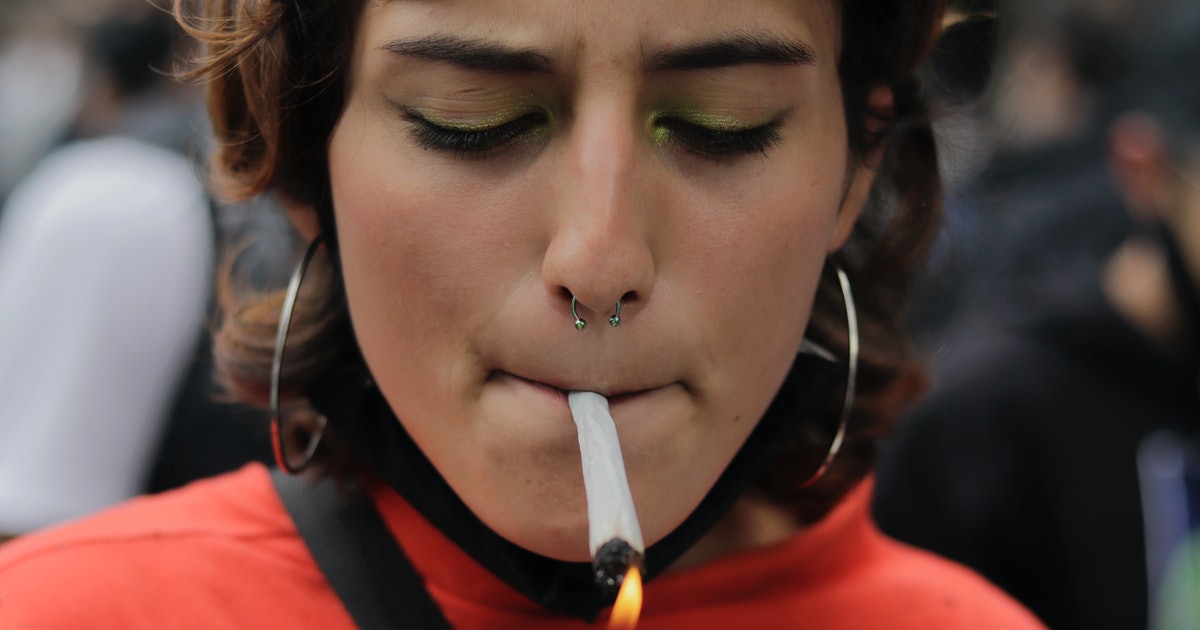
Does cannabis help with headaches? What scientists know so far
Before a series of xenophobic, anti-marijuana laws came into force in the U.S. in the 1930s, cannabis wasn’t just easy to access — it was common for doctors to prescribe its use for migraines and headaches.
Even the personal physician to Queen Victoria supported cannabis as a treatment for headache conditions — an endorsement founded on an established history. Ancient Greeks and Persians recommended using cannabis to treat ailments relating to the head, and the earliest known document of Arabic pharmacology documents the use of cannabis for headaches. When the Marihuana Tax Act of 1937 passed, it was opposed by the American Medical Association.
The criminalization of cannabis stalled research into its medicinal potential and therapeutic application, but this did not stop people from using the psychotropic plant in an attempt to alleviate pain.
Conversations about embracing cannabis for migraines abound online, with some people sharing that — while the migraines may not stop — it makes the pain manageable. In a 2016 survey of 1,429 self-identified medicinal cannabis users, 36 percent reported using it specifically for migraines and headaches.
But the question is: Does cannabis actually combat migraines in some people? And if so, why?
The answer isn’t clear, explains Jessica Ailani, a clinical professor of neurology at MedStar’s Georgetown University Hospital and director of the MedStar Georgetown Headache Center in Washington D.C.
“Cannabis needs more studies before effectiveness in migraine can be generalized,” Ailani tells me. “It is unclear if it is helpful or harmful, how often it can be used, does it cause a rebound effect; is there a specific strain of cannabis that is most effective in migraine. We still have a long way to go.”
Migraines and cannabis
For now, research reliant on self-reported results suggest inhaled cannabis can reduce migraine severity by 50 percent — but its effectiveness is dulled by how frequently it’s used, possibly because of developed tolerance.
Preclinical research on animals suggests the benefits people say they are experiencing might be linked to how the endocannabinoid system (ECS) interacts and modulates neural pathways related to migraines. The ECS is a network of chemical signals and cellular receptors throughout the body and brain; when a person uses cannabis, the cannabinoid tetrahydrocannabinol (THC) binds to receptors that are a part of this network.
“People with migraines sometimes ask doctors what their thoughts are about using cannabis to treat migraines and the answer has always been that we don’t have clinical evidence to advise them one way or another,” Nathaniel Shuster tells me.
Shuster is a headache and pain neurologist at UC San Diego Health and an investigator at the university’s Center for Medicinal Cannabis Research.
He’s working toward remedying that. Shuster and colleagues are currently conducting the first randomized, double-blind, placebo-controlled trial examining cannabis as a potential treatment for acute migraines. So far, they have 75 participants in the study and anticipate completing enrollment by the end of this summer at the latest.
As they are “blinded” to the results — the research team doesn’t know which participant was given what — there’s no sense yet to the findings, but the goal is to eventually randomly assign 90 participants to one of four different treatments: TCH, CBD, a combination of the two, or a placebo. These will be administered via a vaporizer; vaporized cannabis might be more effective for people with migraine-related nausea or stomach issues. Participation in the trial requires the individuals not to be regular cannabis users or use opioids.
For now, Shuster does not recommend daily cannabis use for migraines because “we do not know if frequent cannabis use might actually make migraines become more frequent, causing what has been called medication overuse or rebound headaches.”
“I recommend that if people who aren’t under a doctor’s care for migraine are having migraines four or more days per month, that they should make an appointment with their doctor to discuss migraine prevention treatments,” Shuster says.
What works best for migraine relief?
Migraine medications are split into two categories: pain relief and prevention.
The pain-relieving category involves some common drugs — such as Advil and Motrin IB — and drugs more tailored to migraines. Preventative medications include, but aren’t limited to, antidepressants, anti-seizure drugs, and blood pressure-lowering medications.
While these treatments can help, the issue with migraine treatment generally is that none work for everyone, Shuster explains. “There are still some patients for whom these new medications are not effective,” he adds.
This has inspired a commitment to studying alternative routes — some of which have proven promising. For example, research suggests cutting down on alcohol and caffeine use can help, as can diets saturated with omega-3 fatty acids.
Relaxation exercising, biofeedback, and migraine-focused cognitive behavioral therapy can also reduce migraine frequency. Early research also suggests mindfulness can help manage migraines and reduce the recurrence of migraine-related disability.
Exercise and regular sleep can also reduce migraine frequency, says Ailani. This means moderate daily exercise and sticking to a regular sleep schedule.
Before a series of xenophobic, anti-marijuana laws came into force in the U.S. in the 1930s, cannabis wasn’t just easy to access — it was common for doctors to prescribe its use for migraines and headaches. Even the personal physician to Queen Victoria supported cannabis as a treatment for headache conditions — an endorsement founded…
Before a series of xenophobic, anti-marijuana laws came into force in the U.S. in the 1930s, cannabis wasn’t just easy to access — it was common for doctors to prescribe its use for migraines and headaches. Even the personal physician to Queen Victoria supported cannabis as a treatment for headache conditions — an endorsement founded…